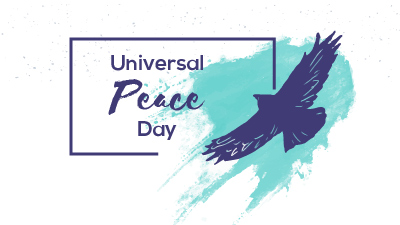Give peace a chance
- POSTED ON: 3 Aug, 2018
- TOTAL VIEWS: 816 Views
- POSTED BY: Madhumitha Srinivasan
- ARTICLE POINTS: 150 Points

A line is drawn across the desk with a piece of chalk separating “your” space from your bench-mate’s. Your pen cannot cross over to your friend’s space and his notebook cannot casually lie over yours. What happens if they do? It means war! Well, not literally.
This may seem silly — no one’s hurt except maybe the pen nib and your ego. But in a larger context, war over territories and ideologies cause large-scale destruction of human life and property.
One example that the world can never or should not forget is the bombing of the city of Hiroshima in Japan. On August 06, 1945, at exactly 8.15 a. m., an atomic bomb was dropped over the city, destroying it and killing 90,000–146,000 people.
The lesson the world learnt that day was the evilness of war and the importance of peace.
The day has since been observed as Universal Peace Day. Every year, on this day, survivors, relatives, and members of the public gather at the Peace Memorial Park in Hiroshima, in front of the Memorial Cenotaph to observe a minute’s silence. They pay their respects to the victims, and pray for peace. The day ends with a lantern ceremony. Thousands of paper lanterns carrying written messages of peace are set afloat on the Motoyasu River.
Peace and you
Besides praying for peace, we can also learn it. Peace need not always be in reference to wars and conflicts. Sometimes, it is just individual acts of kindness.
Look around you — your home, classroom or your neighbourhood. Peace here could mean not having to deal with bullies, having friends and family you can share your troubles with, and having a litter-free street. You don’t have to participate in protests against war and violence. Peace is about being kind to your family, friends, strangers, and nature.
Kids for Peace, a global organisation, organises The Great Kindness Challenge — a week devoted to performing as many acts of kindness as possible. It provides a check-list of 50 kind acts, which the students accept and show the world that kindness matters.